► Electric SUV from China
► Priced from £36k
► Order books open date TBC
‘Someday we’ll all be driving Chinese cars.’ Your least-interesting uncle’s favourite automotive quip of the last 20 years has proven to be a slow burner, but it feels as though an easterly wind has picked up. The Skywell BE11 is an electric SUV you’ve probably never heard of, as most Chinese EVs have been sold in the guise of established British marques so far. But since Skywell has now acquired EU product certification, it may turn out to be one of the first reaching waves of a rising tide.
On the surface, the BE11 has an amorphous exterior design with an ostensibly Japanese/German-style interior. In terms of superficial aesthetic alone, the cabin wouldn’t look too far out of place in a recent German offering, but it’s in the BE11’s build quality where it starts to fall behind.
From the Skywell’s performance stats to the comfort of its seats, I don’t think any trait is worthy enough to topple a comparable European EV in any regard. If the price is right, though, could it charm a cost-conscious UK buyer to look in its direction? Tough ask, but as a new car that’s destined (probably) to go on sale in the UK soon, we’ve given it a go all the same.
Read on for a full review of the Skywell BE11 from CAR.
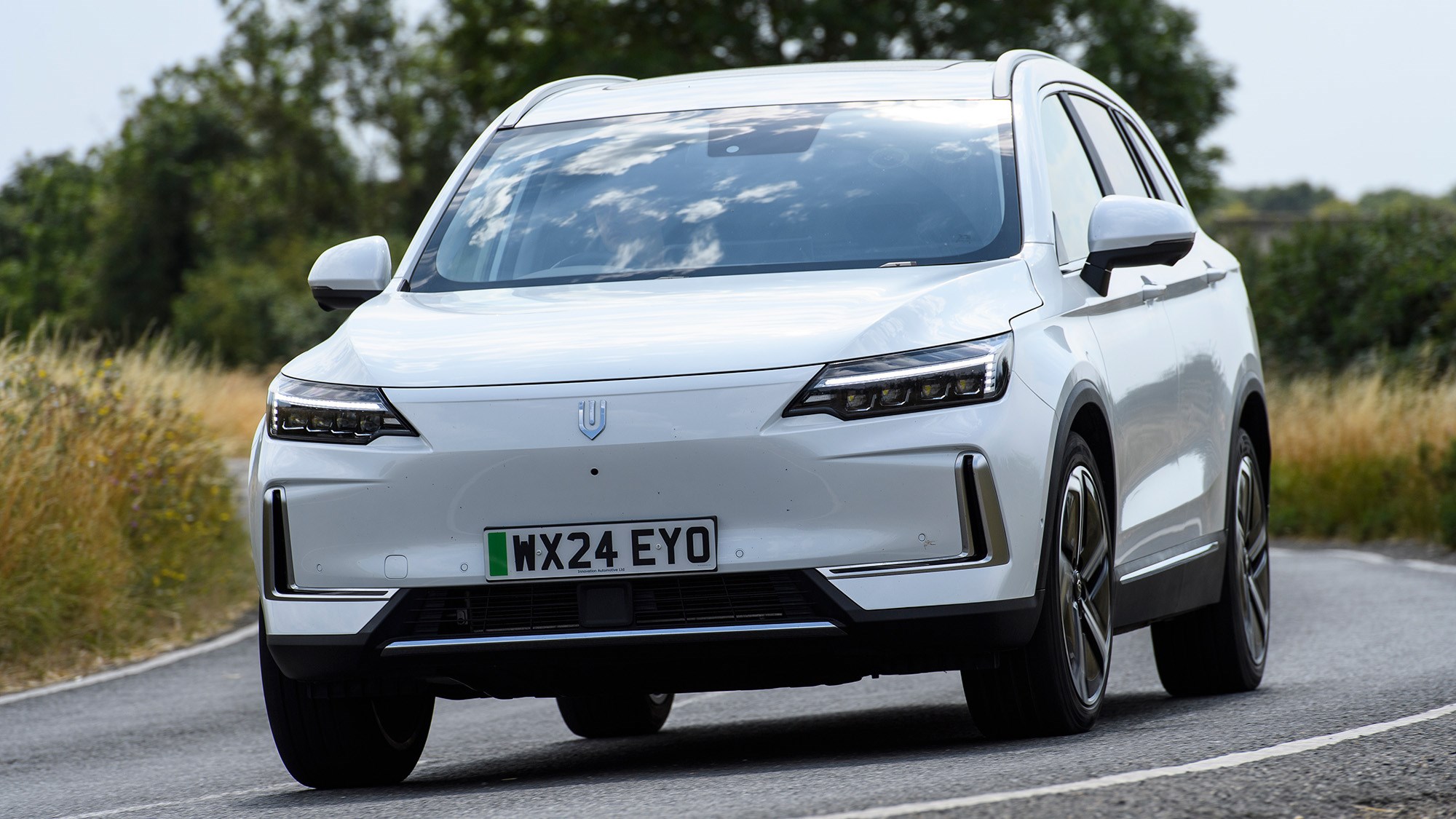
No new car escapes the scrupulous judgement of the CAR Magazine road testing team. We put every model we get our hands on through fire and brimstone before reaching a verdict on whether it’s any good or not. If you’d like to read more on how we do it, be sure to head over to our how we test cars page.
At a glance
Pros: Reasonably comfortable, spacious inside, decent boot
Cons: Cheap interior materials, lacks refinement, better alternatives
What’s the interior like?
Well, modern… at first glance. The BE11 that I drove had a cabin spec’d out in a very business-like colour scheme: black leathers and a walnut-like strip that ran across the dashboard and into the door panels. Formality was the flavour, prim and proper – like a Nissan or a 10-year-old Beamer.
An enormous central unit splits the front two seats, on which the gear selector switch and other function buttons can be found. It’s an altogether sleek and attractive unit, with glossy black plastic and polished metal accents, if a little lacking in imagination.
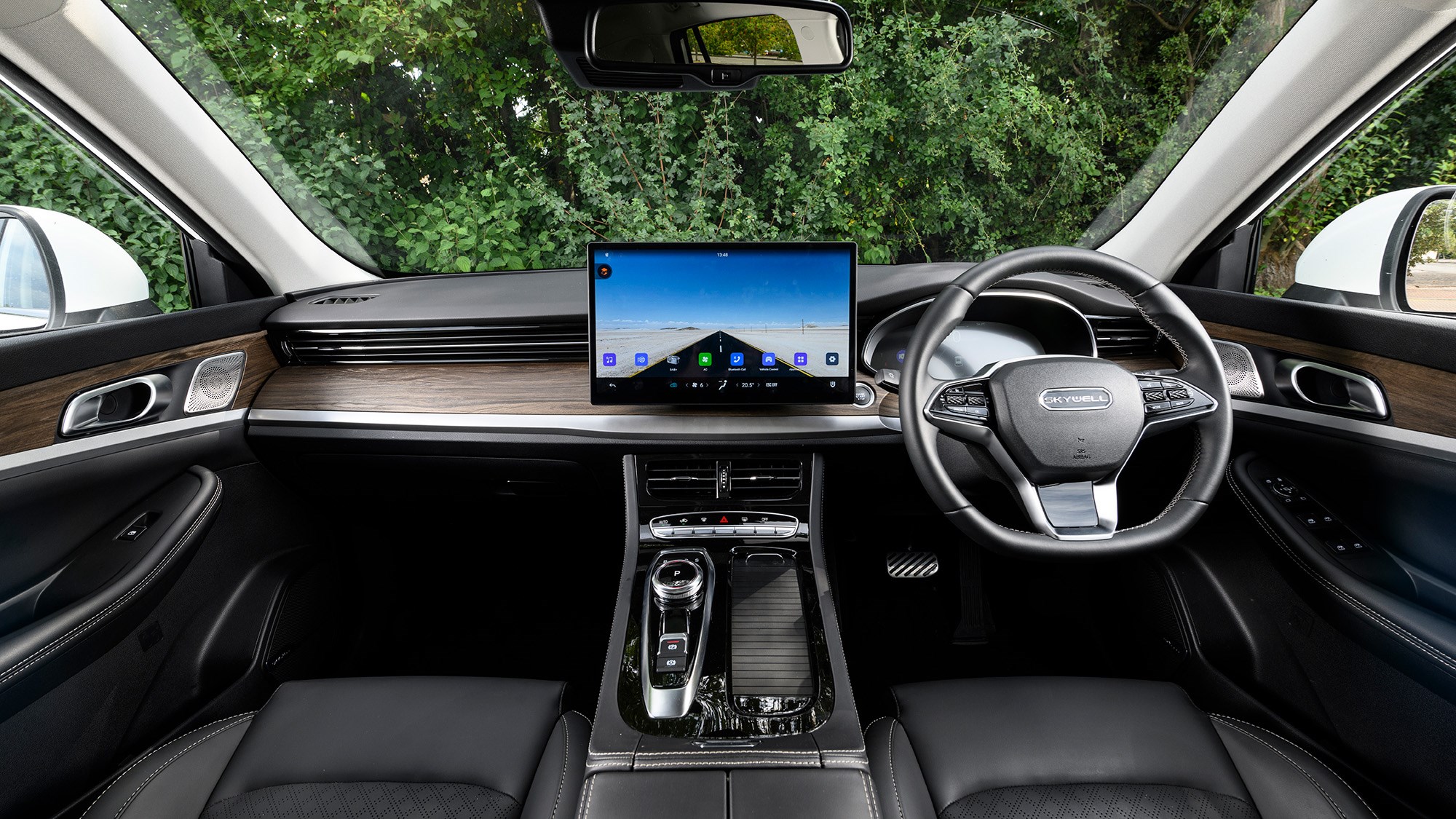
It’s when you start prodding around the cabin, however, that some of its bigger shortfalls become clear. The armrests on the doors, for example, are built from a very flimsy plastic, as are the mirror-control buttons on the driver’s side. They weren’t especially pleasant to the touch, and I got the impression that this family electric SUV probably wouldn’t stand the tests of daily family wear very well for very long. It is, however, reasonably comfortable, with supportive seats and plenty of adjustment on offer to find the perfect position. It’s a big car, so head and legroom are both available in abundance. Four six-foot-plus adults would have no problem getting comfortable in the BE11. Five might be a squeeze.
The dashboard is dominated by an almost comically big infotainment display. I’m of the opinion that infotainment displays can only get so big before they appear like an affectation, overbearing and compensatory. For as big as the display is, the Skywell doesn’t yet have the software nor graphics to fill it. The display is set out like an oversized landscape iPad, complete with widget-like apps on the home display. Pretty banal stuff.
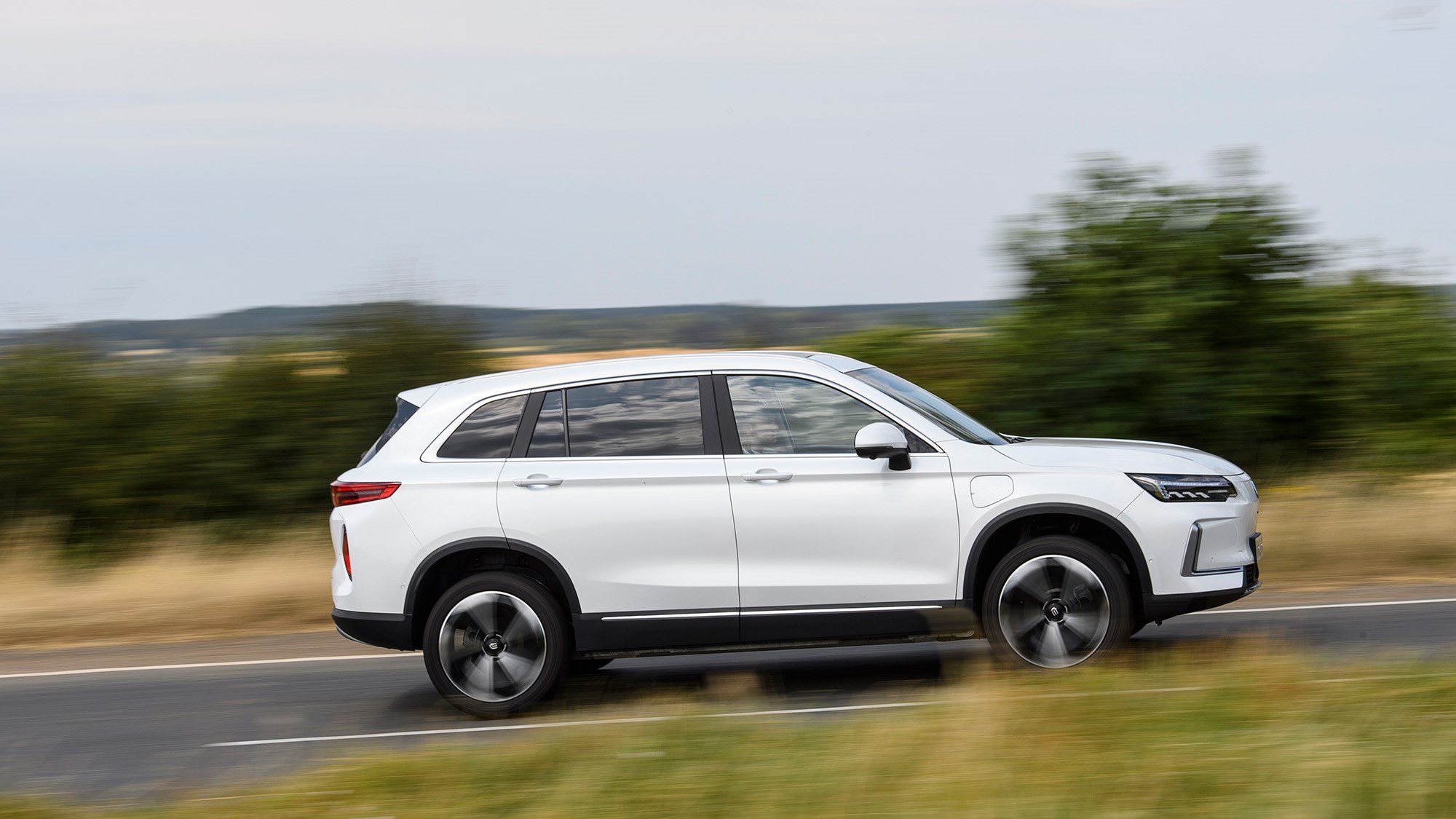
I’d rather the screen were smaller, with all four corners in close reach than the great illuminated coffee table that it is, but that’s just me. As for the graphics, they were pretty shoddy. The user interface felt dated and a bit clumsy in its design. The car I drove was, however, a production model, so these short falls may have been readdressed by the time it goes on sale.
What’s it like to drive?
The BE11 is powered by a 150kW electric motor – about 201bhp – with a maximum torque rating of 236lbft. It weighs either 1,880kg or 1,930kg depending on the size of the battery you go for, but the BE11 isn’t able to accelerate with any great urgency either way.
We’ve become accustomed to EVs offering a decent amount of initial poke when you put your foot down, but the Skywell struggles to get its weight shifting. It takes 9.6 seconds to get from 0-62mph, which feels more like the getaway pull of an ICE car on the road. On the boil, though and heading in a straight line, the BE11 is perfectly inoffensive. It’ll happily cruise along at motorway speeds with little more to steal your attention than the whine of the electric motor or the soft brushing of air passing over the top. It’s when I met my first corner that all hell broke loose.
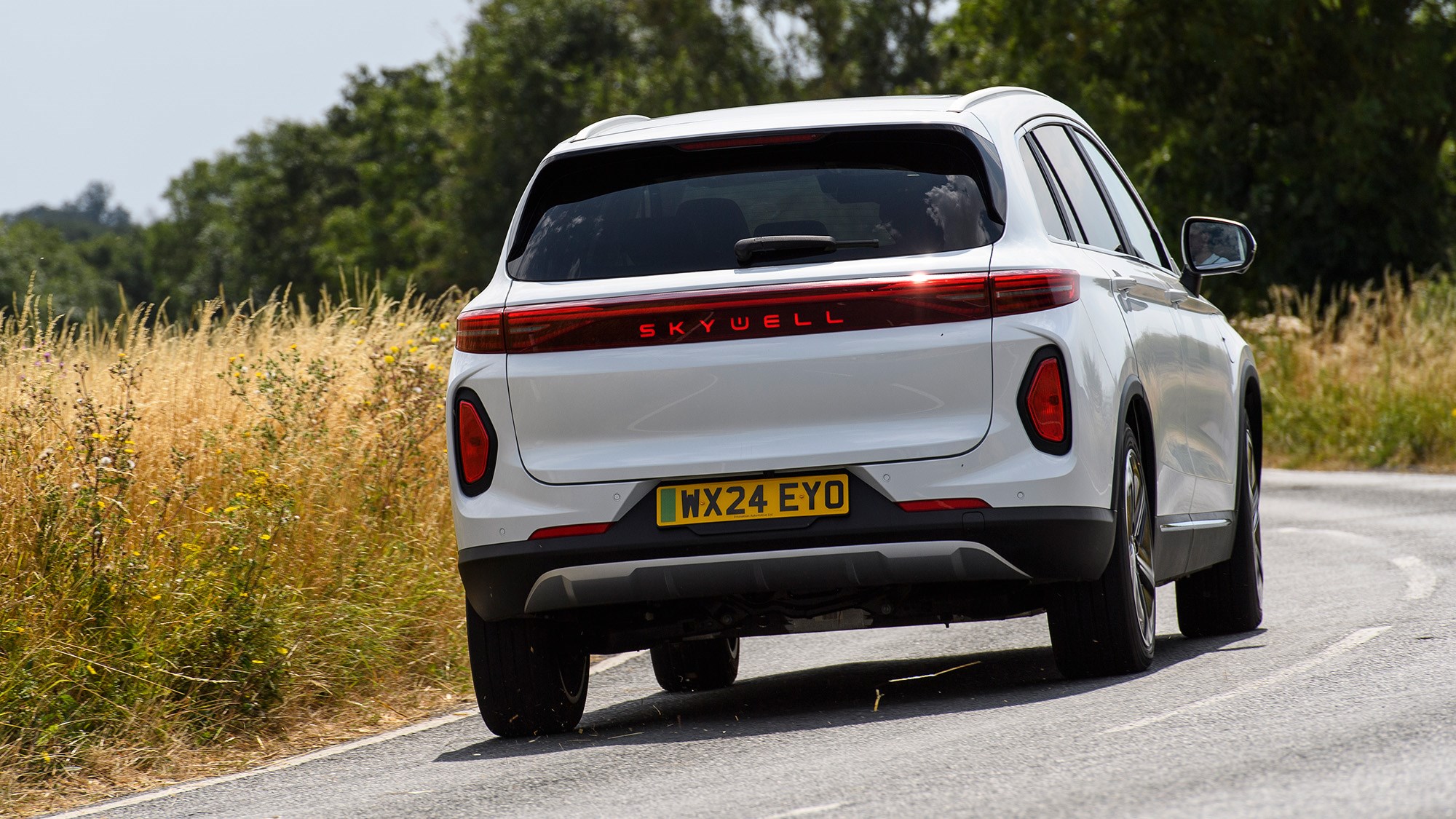
As you may have noticed from the images on this page, the BE11 is so softly sprung that it leans into corners like nobody’s business. Coupled with some occasionally alarming understeer as the front tyres scrabbled for grip, using every inch of adhesive contact to haul the great SUV around the corner, and it was all a bit of a clumsy affair. Oh, and I haven’t even got onto the steering yet…
The steering tune is, by far, the lightest of any car I’ve ever driven. I’m convinced that the wheel could be operated by the feet of a pigeon it’s so light, and it left quite a lot to be desired in terms of grip awareness. I wasn’t expecting Mclaren Super Series levels of road communication, but unless I crawled around B-Road corners, they could occasionally prove quite lively events with second or even third bites of the turn in cherry.
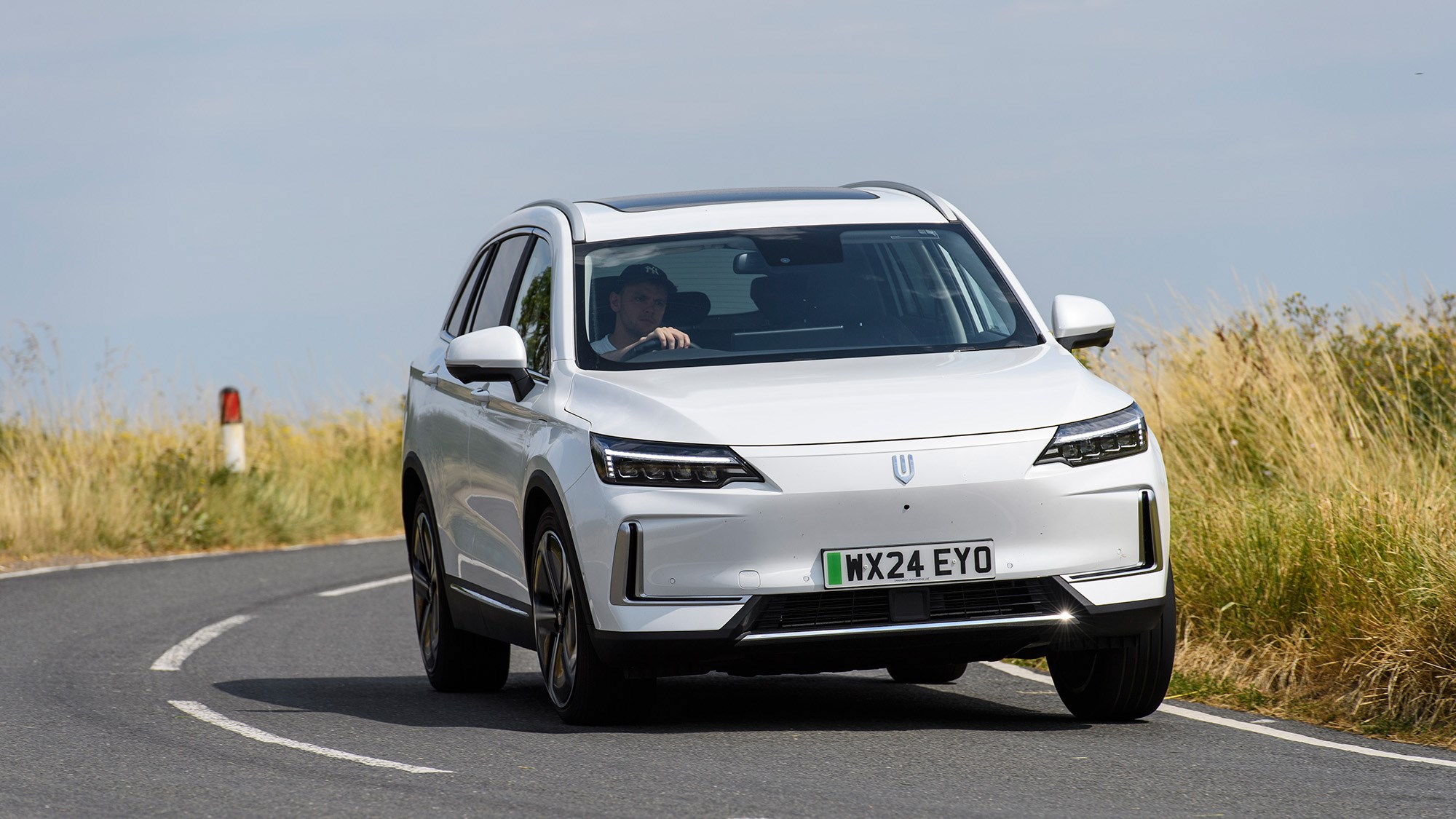
Any redeeming qualities? It offers quite a comfortable ride, soaking up road imperfections well with its soft suspension and insouciant damping set up. There are 248 miles or 304 miles of range on offer depending on which battery you go for – as quoted by WLTP – so the Skywell can go a decent way between trips to the plug. It does still fall short of the Renault Scenic, however, which has a quoted max range of 379 miles.
What are the specs?
The EB11 is available with either a 72kWh or an 86kWh battery, good for ranges of 248miles and 304 miles respectfully, as quoted by WLTP. With 201hp and 236ftlbs of torque on offer from the electric motor, the front-wheel drive BE11 can reach 62mph from zero in 9.6 seconds, before maxing out at 93mph total.
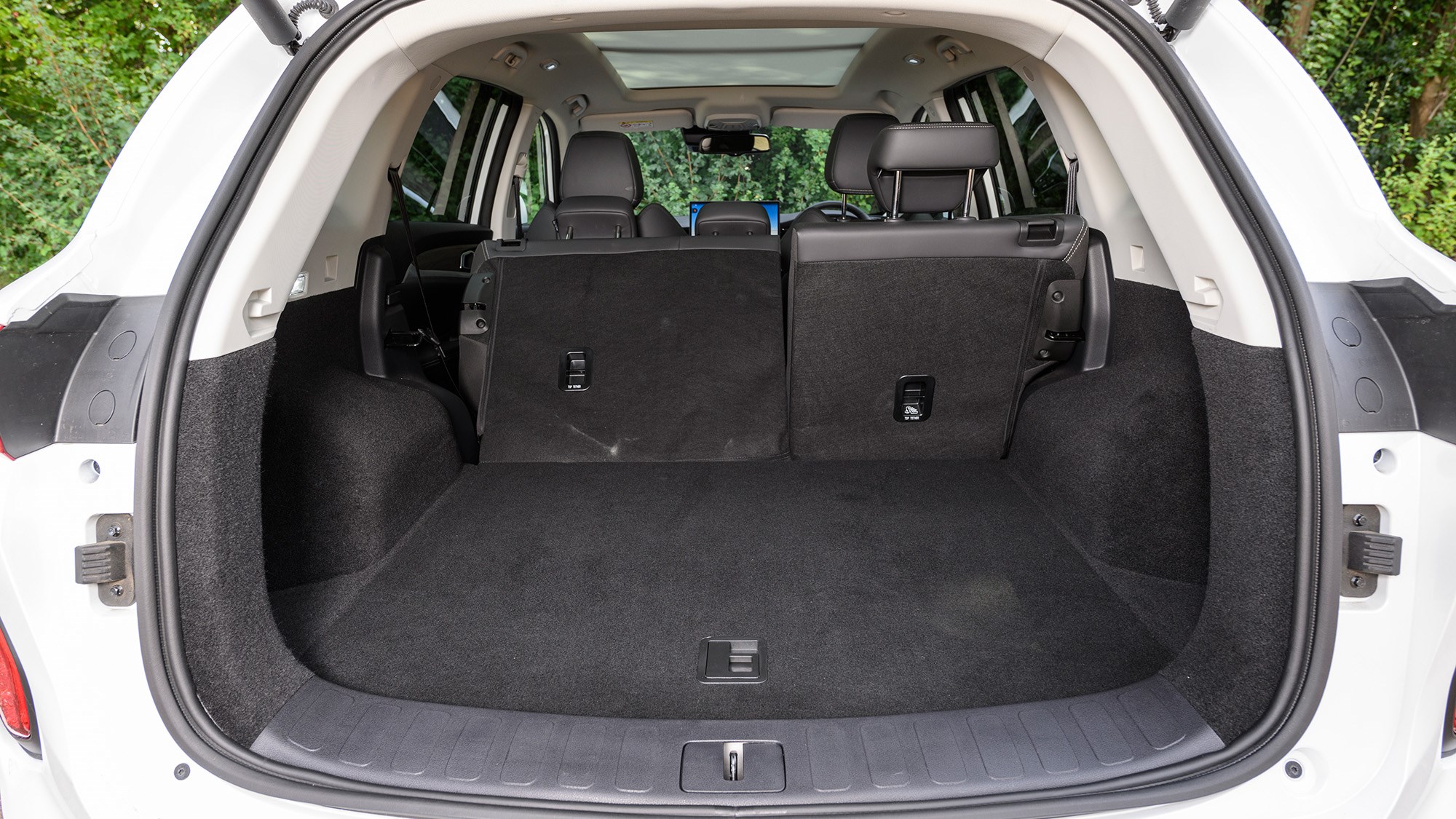
We know it has a maximum AC charging capacity of 11kW but DC charging speed – including from 20-70% – are still unknown. The Skywell is 4,720mm long, 1,908mm wide and 1,696mm tall, while 1,880kg or 1,930kg depending on the size of the battery you spec it with.
Before you buy (trims and rivals)
The BE11 is currently priced at either £36,995 or £39,995 depending on the size of the battery you opt for, while it’s only available with a single trim level. For your money, you get pretty generous amount of equipment, including the enormous 12.8” touchscreen display, ambient lighting around the cabin, six-way electrically adjustable seats and an eight-speaker sound system. Owners are also offered a raft of safety systems including a 360deg parking camera, adaptive cruise control and blind spot recognition as standard, among many more features.
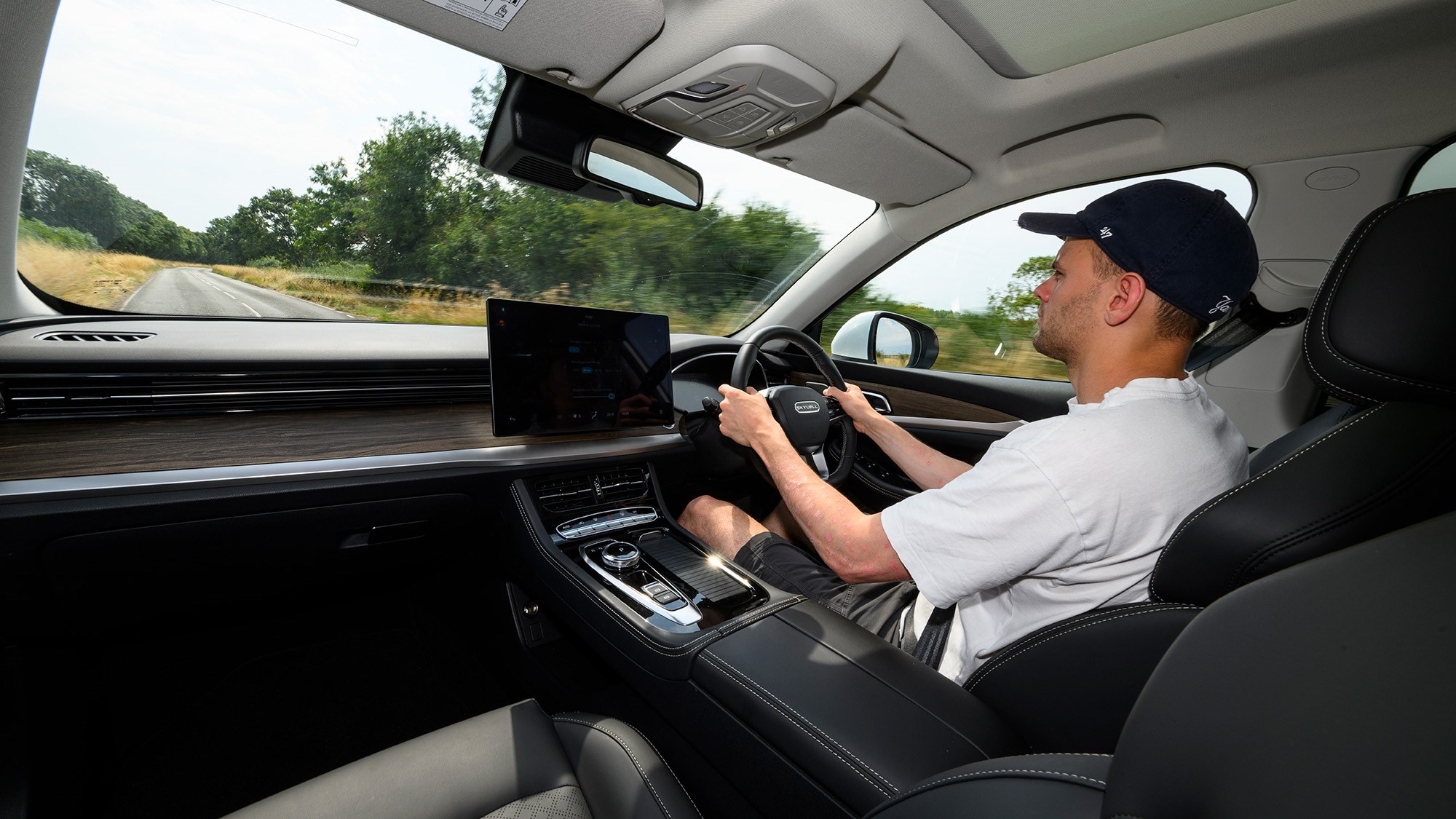
What about rivals? This is where the BE11 gets even harder to recommend. The electric family SUV market is highly saturated these days, with plenty of very strong competitors all in the mix. The 2024 Renault Scenic, for example, is an excellent model in this market, and while slightly shorter with less equipment for a tad more money – about £500 – it’s still an all-round better car. You then have the Skoda Enyaq to mull over, or the BMW iX – both of which can do pretty much exactly what the Skywell can do, only much better and with far more refinement, albeit for more money. Decisions, decisions.
Verdict
I’m sorry to report that the Skywell isn’t a very good car. Beneath a thin veneer of style, it felt quite cheap and tacky in places. The design isn’t interesting nor alluring, and it simply doesn’t stir the soul like you’d want a new car to do. I must grant it its dues – the BE11 includes a decent amount of equipment as standard and can be quite comfortable on the road, but it’s still so difficult to recommend with such strong competition looming over.
If it were sub £30k, I think it’d make more sense to buyers. But starting from £36,995, with the excellent Scenic just up ahead for an extra £500 more, you’d need to have an inconsolable desire to drive against the grain to pick the Skywell. Maybe the marque has more to offer in this class. I rather hope it does.